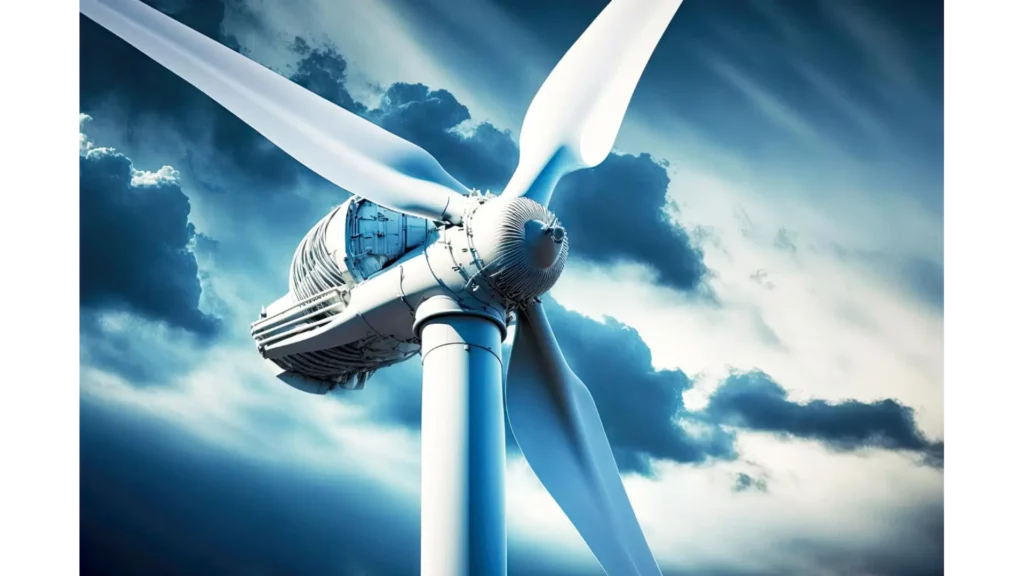As someone deeply passionate about the sustainability journey, I've come to appreciate the unsung heroes behind wind energy – the transportation companies.
These specialized firms masterfully tackle the logistics of moving wind turbine parts, like blades, towers, and nacelles, from factories to wind farms, spanning both land and sea. My exploration into this niche has revealed the critical role they play in making renewable wind energy a reality.
They navigate through a maze of planning, precision, and challenges, ensuring these components reach their destinations safely and efficiently. It's a fascinating world that underscores their vital contribution to our sustainable future.
Understanding the Importance of Wind Energy Transportation Companies
Wind energy transportation companies are at the heart of the renewable energy supply chain. Their expertise ensures the safe and efficient delivery of wind turbine components to installation sites. The role of these companies is critical for several reasons:
- Logistical Expertise: Transporting wind turbine components requires specialized equipment and knowledge due to their oversized and heavy nature.
- Cost Efficiency: Efficient transportation can significantly reduce the overall cost of wind energy projects.
- Project Timeline Management: Timely delivery of components is crucial for the timely completion of wind energy projects.
- Safety: Ensuring the safety of the components, transportation crew, and the public during transit.
- Environmental Sustainability: These companies contribute to the sustainability of wind energy projects by minimizing the carbon footprint of transportation through route optimization and the use of eco-friendly transportation methods.
- Innovation and Adaptability: Facing unique transportation challenges, wind energy transportation companies are leaders in adopting innovative solutions and technologies to improve logistics, showcasing their adaptability to project demands.
- Global Logistics Coordination: The global nature of wind energy projects requires adept coordination across international borders, showcasing these companies' expertise in navigating regulatory environments and logistical complexities.
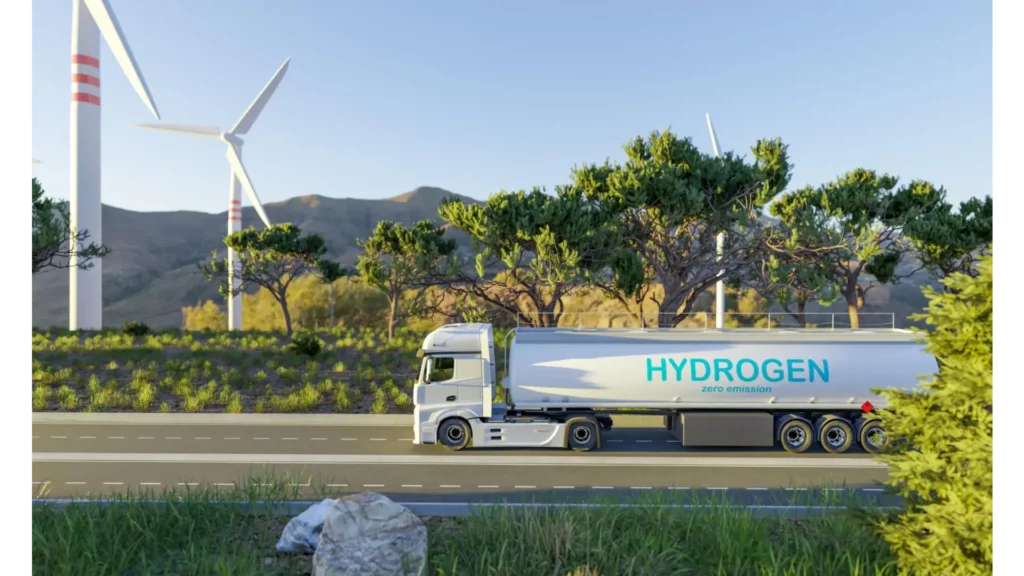
Spotlight on Wind Energy Trucking Companies
Wind energy trucking companies play a crucial role in the renewable energy sector, handling the transportation of large and heavy wind turbine parts.
They leverage specialized equipment and logistics expertise to ensure the safe and efficient delivery of these components, facilitating the installation and expansion of wind farms.
As the wind energy industry grows, the demand for these specialized transportation services increases, highlighting their essential contribution to the global shift towards sustainable energy.
Read also our post on The Wind Beneath Our Wings
The Challenges Faced by Wind Energy Transportation Companies
The journey of wind energy components from manufacturing facilities to installation sites is fraught with logistical complexities.
Wind energy transportation companies navigate a labyrinth of challenges to deliver these components safely and efficiently.
Let's delve deeper into these challenges and understand their nuances.
- Size and Weight
The massive size and significant weight of wind turbine components, such as blades that can stretch over 100 meters, necessitate specialized transportation solutions.
This includes the use of custom-designed trailers engineered for balance and stability to handle these giant components securely across long distances.
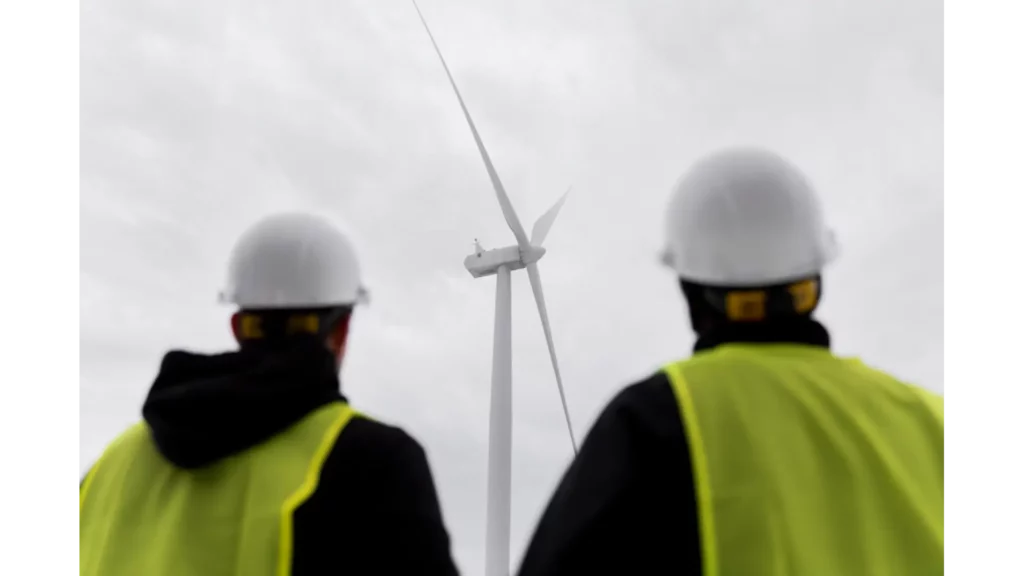
- Infrastructure Limitations
The existing road and bridge infrastructure, often not designed to accommodate the transport of oversized loads, poses a challenge.
It may require modifications or careful route planning to avoid structural and spatial limitations, ensuring the components can reach their destinations without damaging the infrastructure or the cargo.
- Regulatory Hurdles
Transporting oversized components is heavily regulated, with requirements varying significantly across jurisdictions.
Securing the necessary permits involves extensive planning and coordination with multiple local authorities, making the process complex and sometimes unpredictable, with potential delays and added costs.
- Environmental Concerns
Wind energy transportation companies strive to minimize the environmental impact of their operations, aligning with the renewable energy sector's ethos.
This involves careful route planning to avoid ecologically sensitive areas and reduce carbon emissions, ensuring that the logistics of wind energy contribute positively to environmental sustainability.
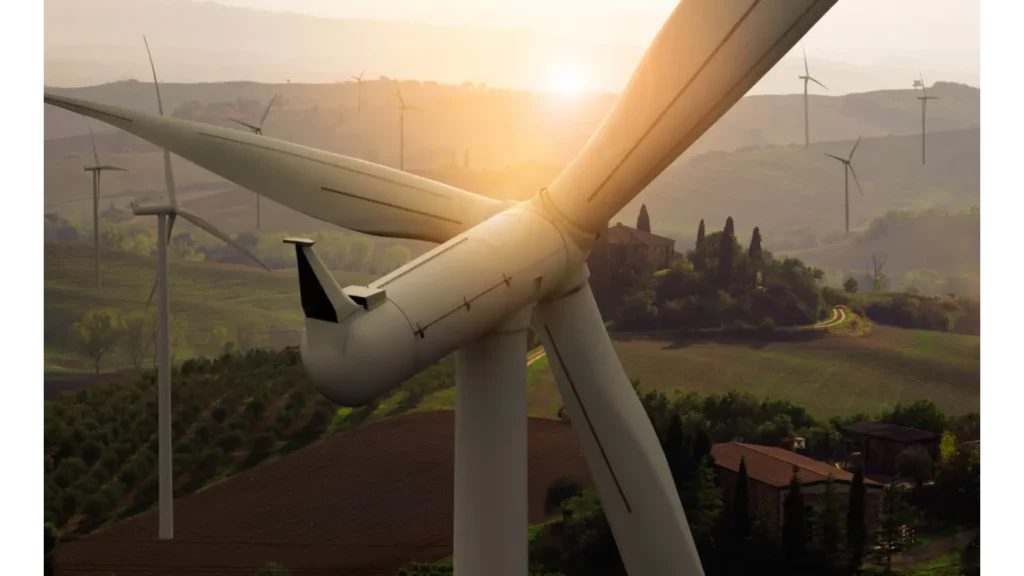
Innovative Solutions in Wind Energy Transportation
To overcome these challenges, wind energy transportation companies are employing innovative strategies:
- Customized Transportation Equipment: Special trailers and modular transport systems are designed to handle the unique dimensions and weight of wind turbine components.
- Route Planning Software: Advanced software helps in planning the most efficient and least disruptive routes.
- Collaboration with Authorities: Working closely with local authorities to streamline permit processes and route approvals.
- Sustainable Practices: Implementing eco-friendly practices in logistics to reduce the carbon footprint of transportation activities.
- Adaptive Loading Techniques: Developing adaptive loading techniques and equipment for secure and efficient loading of varying sizes and shapes of turbine parts.
- Real-time Tracking Systems: Using GPS and IoT for real-time shipment tracking, enhancing coordination and security.
- Specialized Training Programs: Providing specialized training to staff for handling the unique challenges of wind turbine transportation.
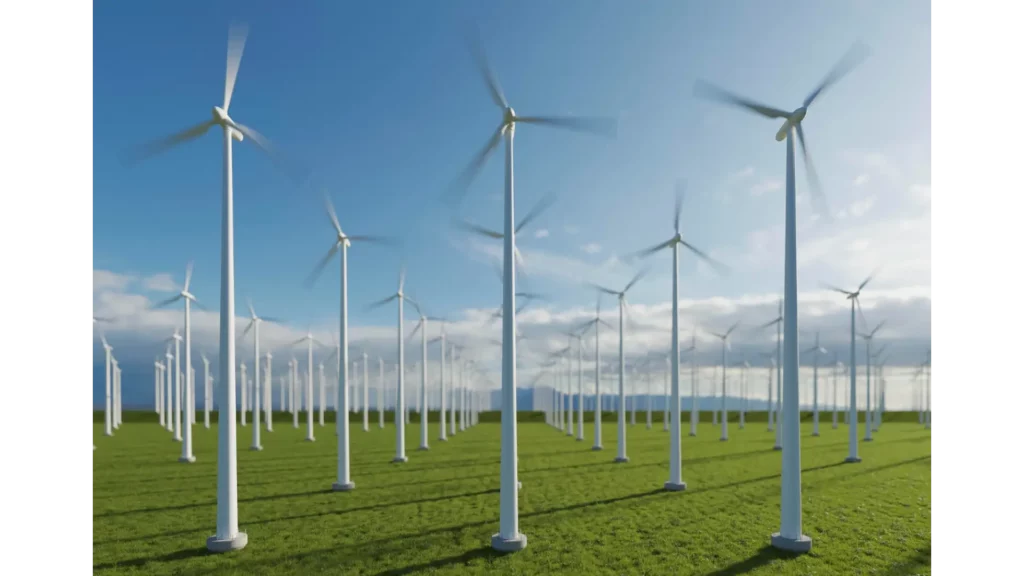
Navigating the Complexities of Wind Energy Logistics
Wind energy logistics is essential for the successful deployment of wind energy projects, involving specialized transportation and planning to move oversized turbine components safely and efficiently.
This field addresses the challenges of handling unique dimensions and weights, navigating regulatory requirements, and ensuring timely delivery to installation sites.
The expertise in wind energy logistics is crucial for minimizing costs, meeting project timelines, and adhering to safety standards, highlighting its indispensable role in advancing renewable energy initiatives.
Wind Energy Transport in Huntington Beach: A Local Focus
Huntington Beach is notably contributing to the renewable energy sector through its involvement in wind energy transport.
This involvement highlights the city's strategic use of its coastal location and the specialized expertise of local companies in handling wind turbine logistics.
Emphasizing sustainable practices and community engagement, Huntington Beach's efforts in wind energy transport go beyond mere logistics, reflecting the city's broader commitment to renewable energy and sustainability.
Key Features of Wind Energy Transport in Huntington Beach
- Strategic Coastal Location: Huntington Beach's proximity to the Pacific Ocean offers strategic advantages for both offshore and onshore wind energy projects.
- Specialized Local Expertise: Companies involved in wind energy transport in Huntington Beach have developed specialized expertise in handling the unique challenges of wind turbine logistics.
- Sustainability Commitment: Huntington Beach's wind energy transport initiatives are deeply rooted in sustainability.
- Community Engagement and Support: Wind energy transport projects in Huntington Beach often involve active community engagement, ensuring that operations are conducted with respect to local needs and environmental considerations.
- Collaboration with Renewable Energy Projects: Huntington Beach is not just a hub for transport logistics; it's also a collaborative partner in broader renewable energy projects.
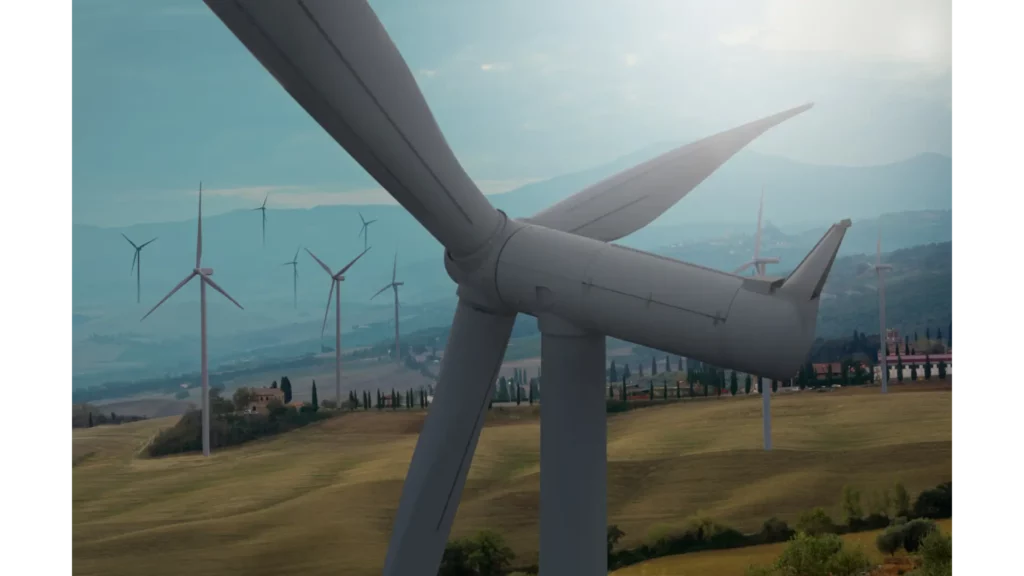
The Future of Wind Energy Transportation
The future of wind energy transportation companies looks promising, with several trends and developments shaping the industry:
- Technological Advancements: The continuous evolution of transportation technology, including automation and AI, will further optimize logistics.
- Expansion of Offshore Wind Farms: As offshore wind energy grows, specialized marine logistics services will become increasingly important.
- Global Market Expansion: With wind energy projects expanding globally, transportation companies will play a crucial role in international logistics and supply chain management.
- Sustainability Focus: Emphasizing sustainable and eco-friendly transportation methods will continue to be a priority.
FAQs: Wind Energy Transportation Companies
What are wind energy transportation companies?
Wind energy transportation companies specialize in the logistics of moving oversized and heavy wind turbine components, such as blades, towers, and nacelles, from manufacturing facilities to wind farm sites. They possess the expertise, equipment, and permits necessary to handle the complex process of transporting these components safely and efficiently.
Why are specialized transportation companies necessary for wind energy projects?
The components of wind turbines are exceptionally large and heavy, making their transportation a logistical challenge that requires specialized equipment and expertise. Standard transportation methods are inadequate for handling the size and weight of these components. Furthermore, navigating the regulatory, safety, and environmental considerations requires a level of specialization that these companies provide.
How do wind energy transportation companies handle oversized loads?
These companies use customized transportation equipment, such as extendable trailers and modular transport systems, specifically designed for carrying oversized loads. They also engage in meticulous route planning, including road surveys and coordinating with local authorities, to ensure that the transportation process is smooth and compliant with regulations.
Can wind energy transportation companies transport components to offshore wind farms?
Yes, wind energy transportation companies also specialize in marine logistics for offshore wind farms. This involves transporting turbine components to the port and loading them onto specialized vessels for installation at sea. These operations require precise coordination and expertise in marine transportation and handling.
What are some challenges wind energy transportation companies face?
Challenges include dealing with the sheer size and weight of turbine components, navigating infrastructure limitations (like bridges and roads), acquiring necessary permits, and minimizing environmental impacts. Each of these challenges requires careful planning and coordination to overcome.
How do transportation companies contribute to the sustainability of wind energy projects?
By optimizing transportation routes and methods, these companies reduce the carbon footprint associated with moving turbine components. Many are also implementing eco-friendly practices in their operations, such as using biofuels for transport vehicles and minimizing route distances to reduce fuel consumption.
What future trends are expected in wind energy transportation?
Future trends include the increased use of technology, like AI and automation, for route planning and logistics management. There's also an expected growth in the offshore wind sector, which will require more specialized marine logistics. Additionally, as global demand for wind energy increases, these companies will likely expand their international logistics and supply chain management services.
Are there any innovations in transportation equipment for wind energy components?
Yes, there are continuous innovations in the design and functionality of transportation equipment for wind turbine components. These include the development of more adaptable and efficient trailers, cranes, and marine vessels, capable of handling larger and heavier components more effectively and safely.
How do wind energy transportation companies ensure safety during transit?
Safety measures include using specialized equipment designed for heavy loads, conducting thorough route planning to avoid hazards, training staff in safety protocols, and coordinating closely with local authorities to manage traffic and infrastructure challenges. Safety is a top priority to protect both the components and the public.
Can these companies handle international transportation for wind energy projects?
Yes, many wind energy transportation companies are equipped to handle international logistics, coordinating the movement of wind turbine components across borders. This involves managing customs clearance, international shipping regulations, and coordination with multiple stakeholders to ensure timely and efficient delivery.
Wind Energy Transportation Companies Conclusion
Wind energy transportation companies are indispensable to the renewable energy sector, offering solutions to complex logistical challenges and ensuring the smooth implementation of wind energy projects.
Their role extends beyond mere transportation – they are integral to the cost-efficiency, safety, and timely completion of projects.
As the demand for renewable energy grows, the importance of these companies will only increase, making them a key player in the global shift towards sustainable energy sources.
Source
https://www.energy.gov/eere/wind/wind-research-and-development

